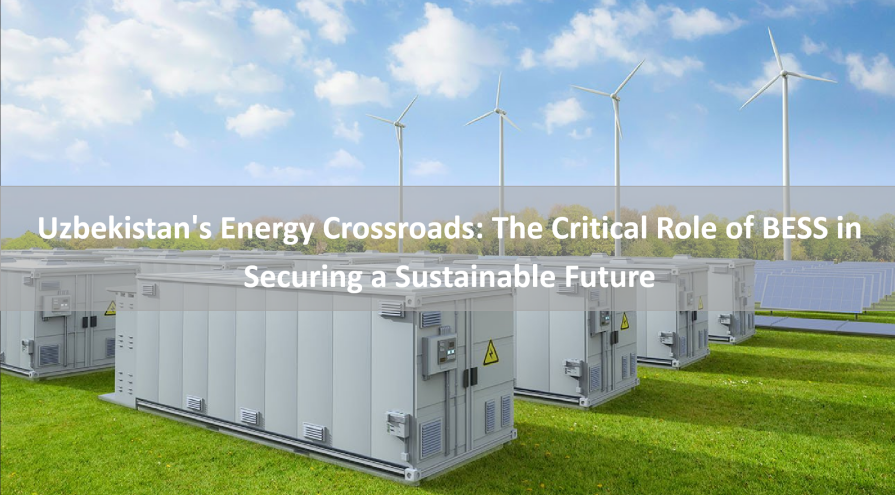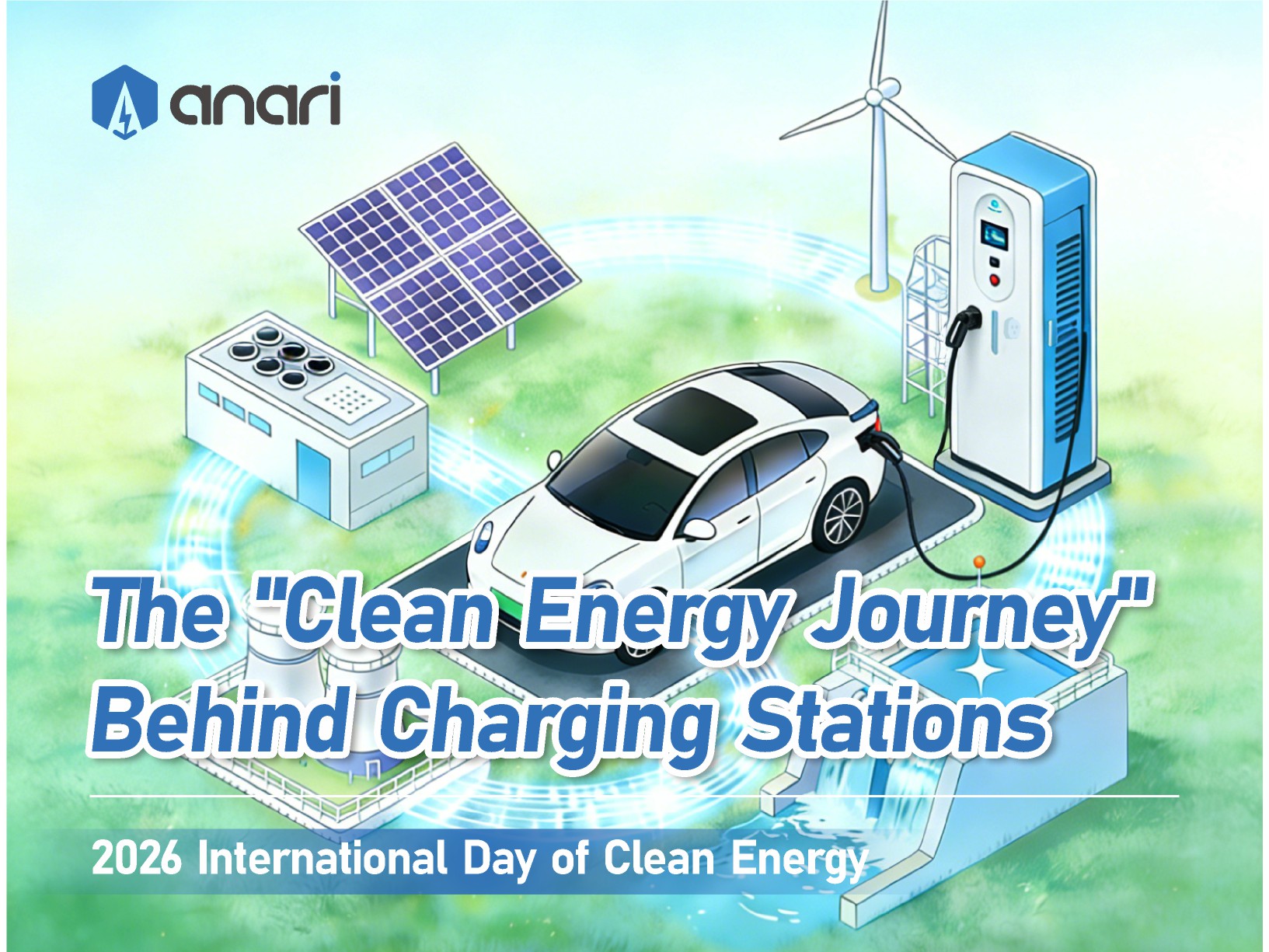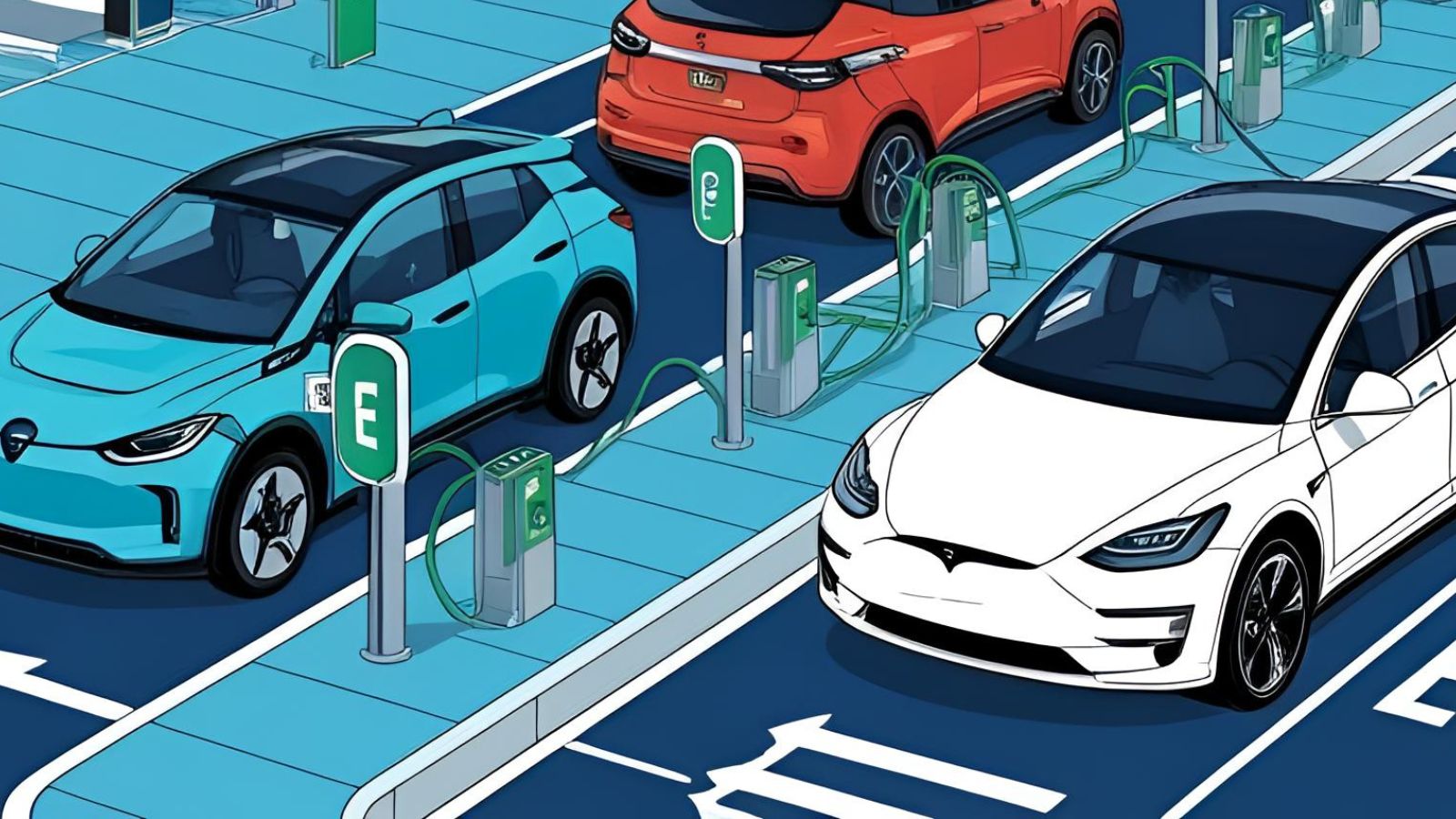
Executive Summary
Uzbekistan represents one of the most dynamic and strategically crucial emerging markets for Battery Energy Storage Systems (BESS) in the Caspian and Central Asian region. Unlike the hydrocarbon-rich Gulf states, Uzbekistan's drive for energy storage is born from a pressing energy security crisis, an aging and inefficient Soviet-era grid, and a publicly committed, aggressive renewable energy rollout. The government's transformative energy strategy, backed by international financial institutions, is creating a fertile but complex ground for BESS deployment.
This report analyzes Uzbekistan's BESS landscape, identifying it as a market poised for rapid, utility-scale growth in the short to medium term. The core opportunity lies in providing grid-stabilizing services for the influx of large-scale solar and wind projects. However, success requires navigating a nascent regulatory framework, managing high project development risks, and offering solutions robust enough for a continental climate with extreme temperature variances. For players like ANARIEV, Uzbekistan offers a chance to establish market leadership by acting as a solutions partner, not just a vendor, helping to build the foundational architecture for the country's clean energy future.
1. Current Development Status of BESS in Uzbekistan: A Market at the Tipping Point
Uzbekistan's energy sector is in a state of acute transition, moving from a legacy of centralized gas-fired generation to a decentralized renewable model. This creates both immense pressure and a clear mandate for BESS.
1.1. Grid Instability as the Primary Driver
The most significant catalyst for BESS in Uzbekistan is not ambition, but necessity. The national grid, managed by the National Electric Grids of Uzbekistan (NEGU), is fragile and suffers from frequent instability and power shortages, especially during peak winter demand. The rapid integration of intermittent renewables poses a severe threat to grid reliability. Consequently, the government and international developers view BESS as a non-negotiable component for frequency regulation and voltage support to prevent blackouts and ensure the success of new renewable investments.
1.2. The Solar and Wind Boom Creating Immediate Demand
Uzbekistan has embarked on one of the most ambitious renewable programs in the region, with targets of 12 GW of solar and wind capacity by 2030. Major projects, such as the 1.4 GW solar portfolio developed by Masdar and the 1.5 GW wind program with ACWA Power, are already underway. The government, through the Ministry of Energy, has recognized that these projects cannot be connected to the weak grid without storage. Several recent tenders have explicitly included or are planning to include BESS components, moving the technology from a theoretical discussion to a mandated requirement for new renewable capacity.
1.3. Pilot Projects Paving the Way
The market is moving beyond feasibility studies. The first significant utility-scale BESS project, a 200 MWh system, was announced in 2023 by the government in partnership with a foreign investor. This pilot is critical for building local technical expertise, testing grid performance, and establishing a reference project for financiers.
Insight: Uzbekistan is skipping the prolonged pilot phase seen in more developed markets. The energy crisis is forcing a "deploy now" mentality, creating a direct pathway for BESS integrated with utility-scale renewables. The value proposition is fundamentally about grid resilience and enabling the energy transition, rather than arbitrage in a mature merchant market.
2. Industrial Policies of BESS in Uzbekistan: State-Led Transformation with International Support
Policy in Uzbekistan is highly centralized and directive, with energy security as the overriding national priority.
2.1. The "Green Economy" Transition Strategy
The overarching framework is the "Strategy for the Transition of the Republic of Uzbekistan to a Green Economy for 2019-2030." This strategy sets specific renewable energy targets and implicitly necessitates investments in grid modernization and flexibility, for which BESS is the leading technological solution.
2.2. The Role of International Financial Institutions (IFIs)
A defining feature of the Uzbek energy landscape is the profound involvement of IFIs like the World Bank, IFC, and Asian Development Bank (ADB). These institutions are providing not only funding but also crucial technical assistance to design tenders, craft regulations, and structure bankable Power Purchase Agreements (PPAs). Their involvement de-risks projects for international developers and lenders, making Uzbekistan a more attractive investment destination than its regional peers.
2.3. Evolving Procurement and PPA Structures
The Ministry of Energy and NEGU are on a steep learning curve. Early solar PPAs did not include storage, but the model is rapidly evolving. The future lies in "Storage-as-Transmission" models or bundled "Renewables + Storage" tenders, where the offtaker (a state-owned entity) pays for the capacity and grid services provided by the BESS, treating it as critical infrastructure.
Insight: Engaging in Uzbekistan requires active stakeholder management with both government bodies and IFIs. Companies that can contribute to the policy dialogue, sharing international best practices on market design and regulation, will position themselves as trusted advisors and preferred technology partners.
3. Types of Core Players, Customer Characteristics, and Customer Needs
The ecosystem is a blend of powerful state-owned enterprises, international developers, and IFIs.
3.1. Core Player Types:
State-Owned Enterprises (SOEs): The key players are National Electric Grids of Uzbekistan (NEGU) as the grid operator and system planner, and JSC National Electric Networks of Uzbekistan as the offtaker. They are highly risk-averse, focused on system security, and driven by political mandates. They prioritize reliability and bankability above all else.
International Project Developers (e.g., Masdar, ACWA Power, Total Eren): These players are winning the large-scale renewable tenders. They are the immediate target customers for BESS suppliers. They need cost-competitive, financeable technology that can be seamlessly integrated into their EPC contracts and secured under a long-term PPA.
International Financial Institutions (IFIs): While not direct customers, the World Bank and IFC are key influencers. They act as gatekeepers for technology and project approval, requiring compliance with international environmental and social standards (ESG) and demanding technologies with a proven global track record.
3.2. Paramount Customer Needs:
Proven Technology in Harsh Climates: Uzbekistan has a continental climate with scorching summers (up to 45°C) and frigid winters (down to -20°C). Customers demand robust BESS with advanced thermal management systems capable of operating efficiently across this wide temperature range.
Bankability and Ease of Financing: Given the perceived country and counterparty risk, projects must be ultra-bankable. This requires BESS solutions from manufacturers with strong balance sheets, comprehensive warranties, and performance guarantees that are acceptable to international lenders and IFIs.
Ease of Integration and EPC Support: Developers, many of whom are new to storage, require "plug-and-play" solutions and strong technical support from BESS suppliers during the design, construction, and commissioning phases. The ability to provide a complete BOP (Balance of Plant) solution is a significant advantage.
Training and Local Capacity Building: SOEs have a critical need for knowledge transfer. Suppliers that offer comprehensive operator training programs and long-term O&M support will build stronger, more strategic relationships.
4. Certification and Access of BESS in Uzbekistan: Building Trust in a New Market
The regulatory and certification landscape is under construction, creating both challenges and opportunities for early movers to shape standards.
4.1. Emerging National Standards
Uzbekistan is in the process of developing its own national technical standards, often drawing from GOST (the post-Soviet standard) and increasingly integrating international IEC and UL standards. The Uzstandard Agency is the responsible body. For BESS, there is not yet a specific, mature standard, so projects are currently assessed on a case-by-case basis.
4.2. The De Facto Standard
International Best Practice: In the absence of mature local standards, the IFIs and international lenders impose their own requirements. Compliance with UL 9540/9540A for system safety, IEC 62443 for cybersecurity, and other key international norms is effectively mandatory for any project seeking international financing.
4.3. Grid Code Compliance is King
The most critical technical requirement is adherence to the Uzbek Grid Code, issued by NEGU. BESS must be certified to meet specific requirements for fault ride-through, reactive power control, and power quality. Proactively engaging with NEGU to understand and test against these requirements is essential for market entry.
Insight: The certification pathway is not clearly defined, which favors suppliers with a proactive and consultative approach. Demonstrating compliance with the highest global safety and performance standards builds confidence with all stakeholders—SOEs, developers, and IFIs alike.
5. Opportunities and Challenges for BESS Development in Uzbekistan over the Next 20 Years
The next two decades will see Uzbekistan evolve from a nascent market to a regional leader in renewable energy and storage, provided key hurdles are overcome.
5.1. Opportunities (The 20-Year Horizon):
The Foundation for a Modern Grid: BESS will be the cornerstone of a smarter, more flexible, and resilient Uzbek grid. Beyond renewable integration, opportunities will expand to include black start capability, congestion relief on constrained transmission lines, and eventually, providing ancillary services in a formalized market.
C&I Market Emergence: As the grid stabilizes and electricity tariffs are reformed to reflect true costs, the Commercial & Industrial (C&I) segment will emerge. Large industrial consumers will seek BESS for peak shaving, power quality improvement, and backup power, creating a significant secondary market.
Regional Electricity Trading: Uzbekistan's strategic location positions it as a potential hub for the Central Asian power market. A robust grid, fortified by BESS, would allow Uzbekistan to export surplus renewable energy to neighboring countries like Afghanistan and Pakistan.
5.2. Challenges (The Hurdles to Overcome):
Financial Capacity of the State Offtaker: The single greatest risk is the creditworthiness of the state-owned offtaker. While IFI support mitigates this, the long-term financial sustainability of the PPA and capacity payment models is untested.
Regulatory and Currency Risks: The legal framework for independent power producers (IPPs) is still maturing. Regulatory uncertainty and currency convertibility issues remain key concerns for foreign investors and require robust risk mitigation strategies.
Local Supply Chain and Skills Gap: There is virtually no local BESS supply chain, and a significant skills gap exists in project development, system integration, and long-term operation. Successful players will need to invest in local training and navigate complex importation and customs procedures.
Technology Performance Concerns: The long-term degradation and performance of batteries in Uzbekistan's extreme climate is an unproven variable that could affect investor confidence. Manufacturers must provide transparent data and strong warranties.
Conclusion and Strategic Implications
Uzbekistan is not for the faint of heart, but it offers a compelling strategic opportunity for BESS players with a long-term vision and a high tolerance for market development complexity. Success will be determined by the ability to function as a solutions provider, not just a equipment supplier.
For stakeholders considering the Uzbek market, the strategic imperative is to partner with organizations that demonstrate:
Technological Fortitude: A product portfolio proven to perform and endure in extreme and variable climates.
Financial Solidarity and Bankability: The financial strength to support long-term warranties and provide comfort to international lenders and the risk-averse offtaker.
Stakeholder Partnership: A commitment to engaging with SOEs and IFIs, providing training, and supporting the development of a sustainable local energy ecosystem.
Integrated Solution Expertise: The capability to deliver or facilitate integrated EPC and O&M services, simplifying the process for developers.
ANARIEV, with its global expertise and integrated product ecosystem from solar to storage, is uniquely positioned to be a foundational partner in Uzbekistan's energy transition. By addressing the core challenges of grid stability and renewable integration, we can help build a secure and sustainable energy future for the nation, establishing a dominant presence in this high-growth frontier market.








